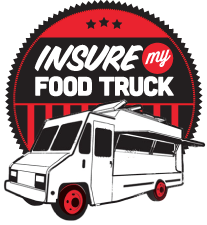Since we focus on assisting the food truck community, we often get opinionated friends, family and acquaintances commenting on gourmet food truck pricing. Our friends at Prestige Food Trucks provided this excellent explanation.
Are Food Truck Menu Prices Inflated?
The food truck movement has grown tremendously in the past five years and most people already accept food trucks as mainstream. However, some people still remain skeptical and refuse to join the food truck bandwagon. The main reasons why people reject food trucks are sanitary concerns and fear of unfair competition. The first reason is self-explanatory, but I’ll explain the latter. People believe that food trucks are hurting local and chain restaurants, and that the competition is unfair since it costs much more to have a brick-and-mortar restaurant than it does to start a food truck. Therefore, food trucks are able to charge less and that is hurting traditional town restaurants and even renowned chains.
Opinions are divided on this subject, but here are a few things to consider:
It is true that food trucks can charge less, but the truth is that they usually don’t. Most food trucks have limited storage capability, so they can only work for a few hours without having to restock the truck. That means they have to earn their profit in a short amount of time, so they usually charge roughly the same price that an average restaurant charge for discounted lunch menu items.
Food trucks are also in disadvantage when it comes to buying raw material. Restaurant chains can usually get a better price since they order larger quantities. And food trucks are forced to buy products in smaller quantities since they don’t have much storage room, or a demand as large as chain restaurants do.
There is also the perception that food trucks should automatically be cheaper because the food is lower quality, and that couldn’t be further from the truth! Food trucks started being popular in the suburbs right after World War II, and back then food trucks only sold a small variety of items such as tacos, hamburgers and ice cream. Nowadays we have food trucks selling sushi, lobster and even Fugu. These food trucks abide by the same regulations as restaurants do to be able to pass inspection. And they have to provide high-quality product or consumers would cease to frequent their business or even bash them on social media, which can potentially ruin a small business.
All in all we believe there is enough space for everybody in the marketplace. Food trucks challenge restaurants to stay fair with their prices and increase variety, and restaurants challenge food trucks to maintain a high-quality product. At the end, the public is the one harvesting the benefits of a free market where they are free to choose their dining alternative regardless of price, location or food type.
Full link to article here.

